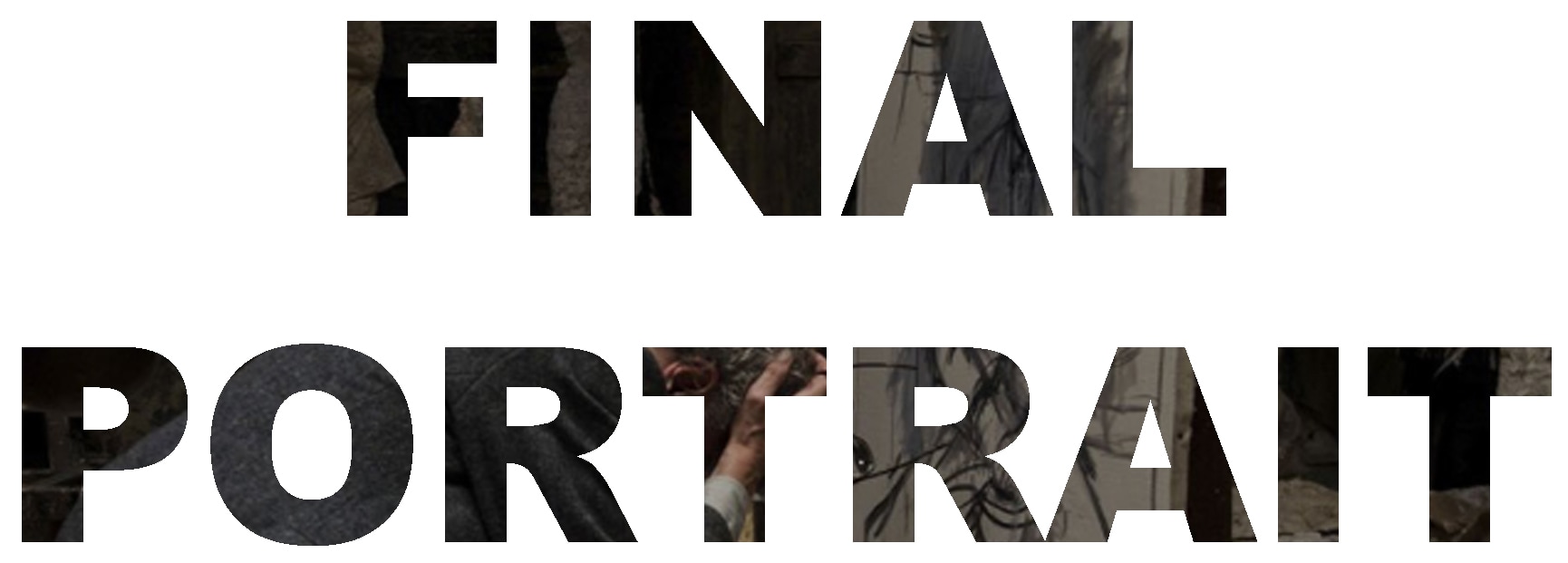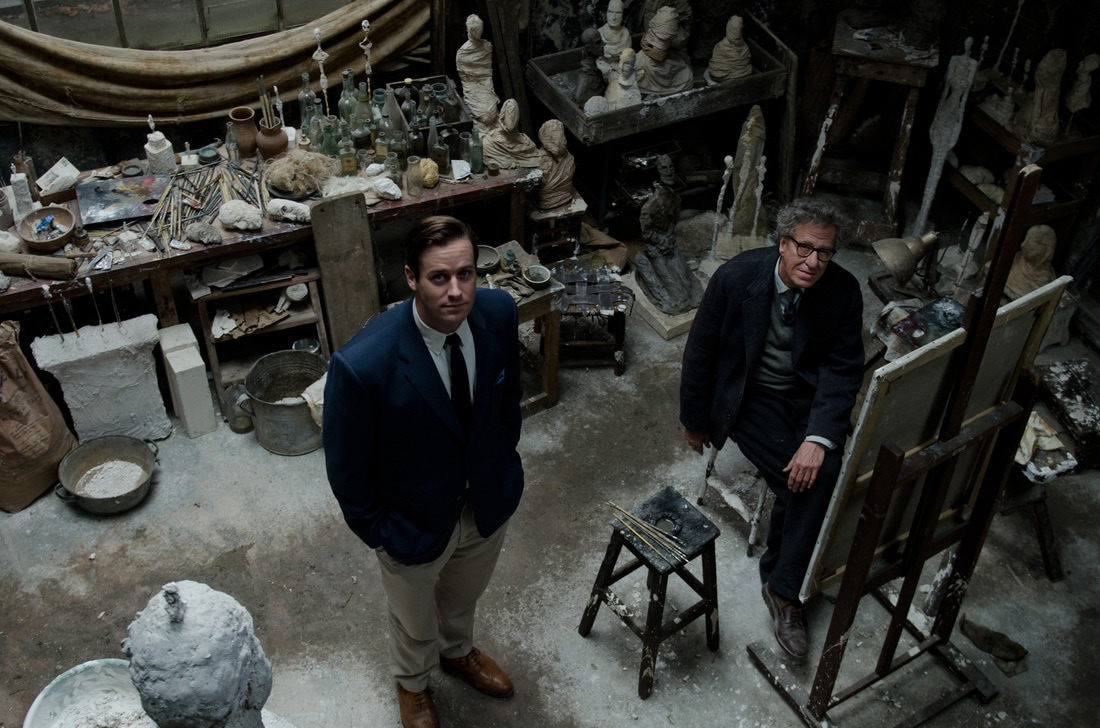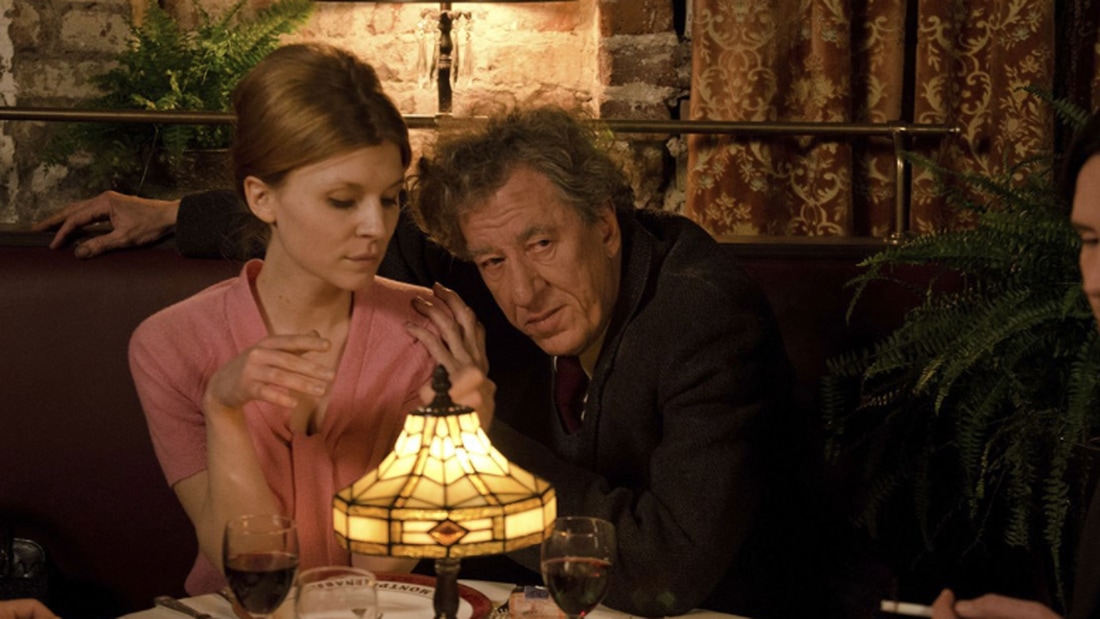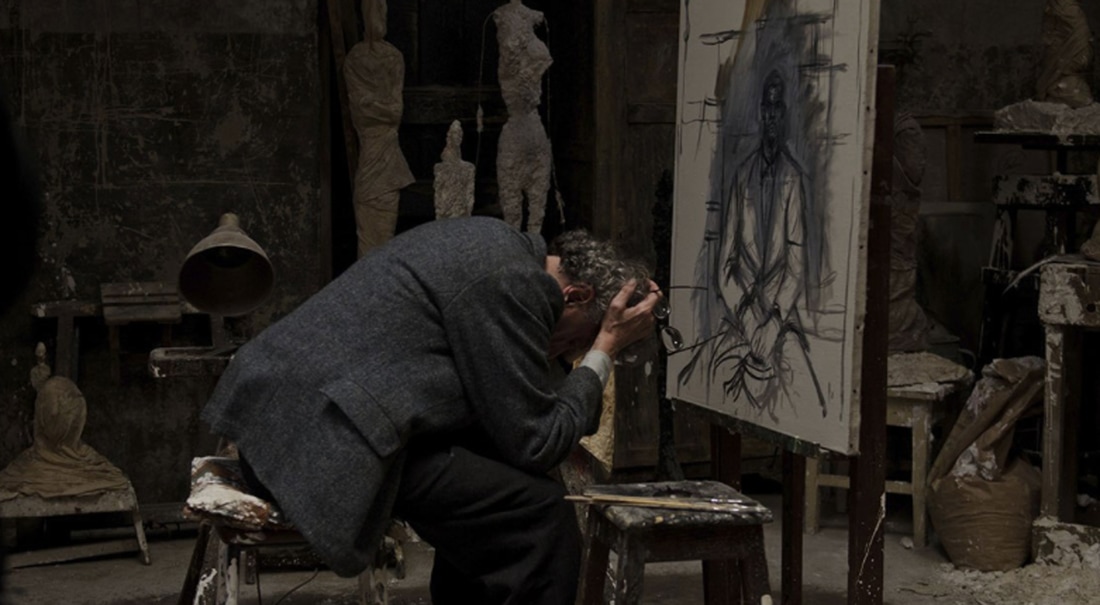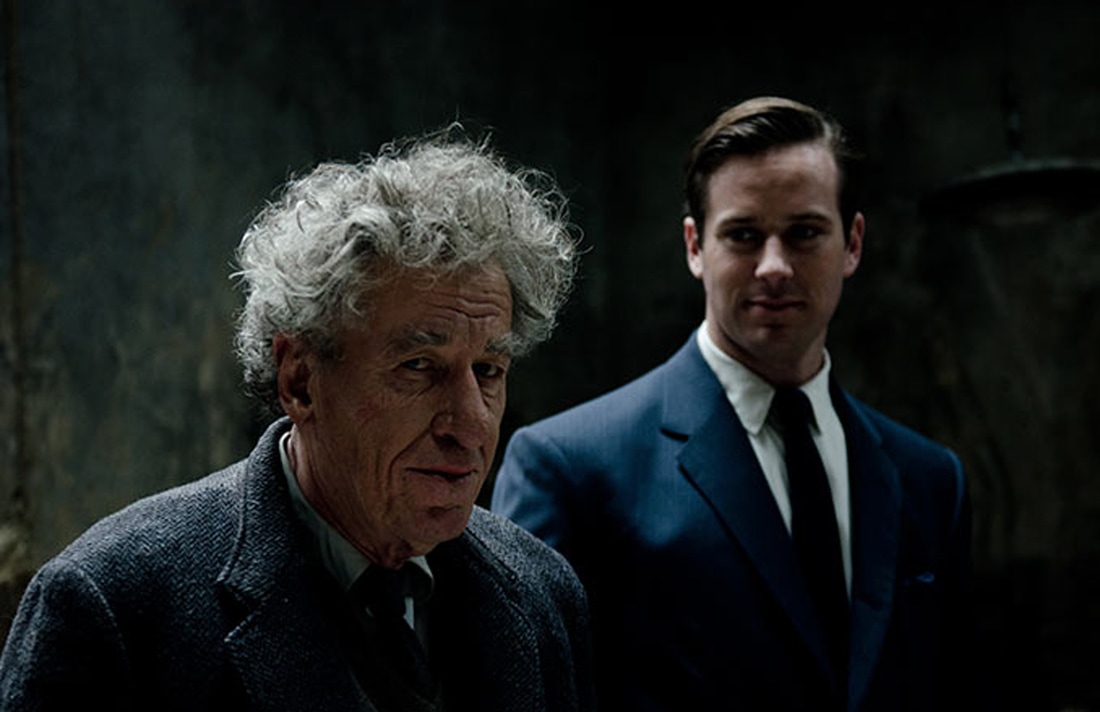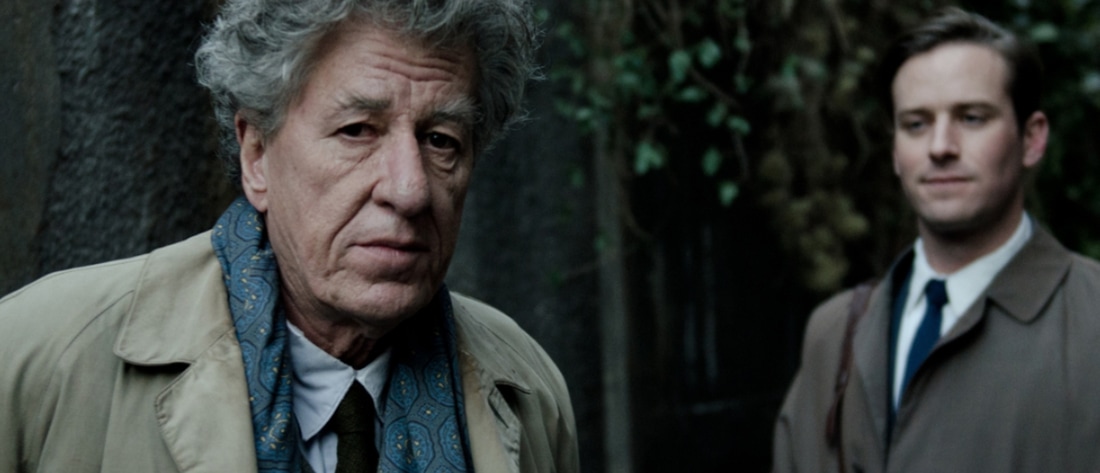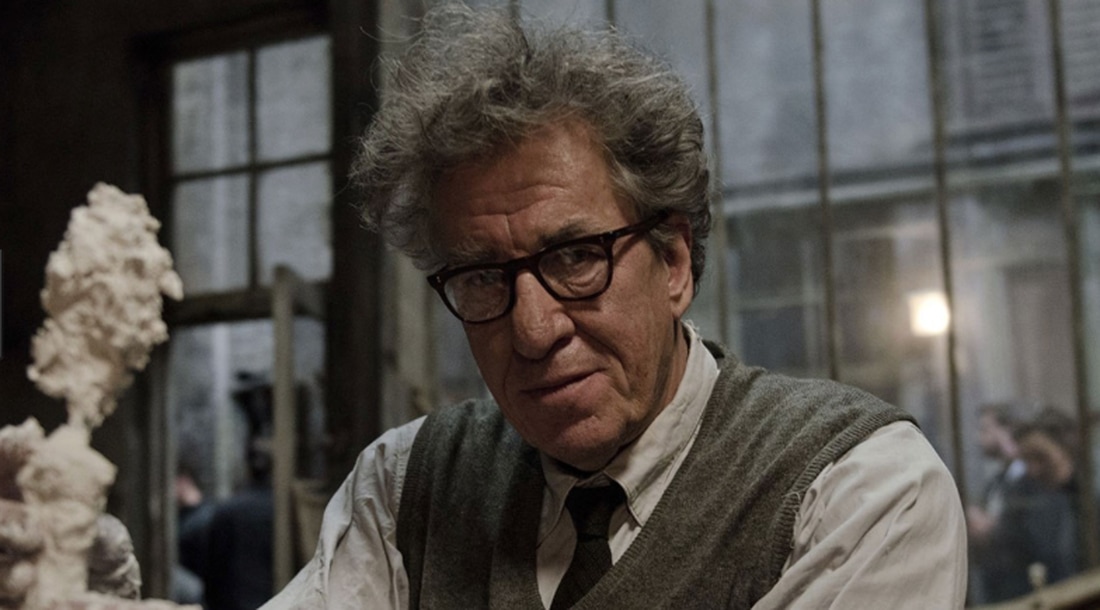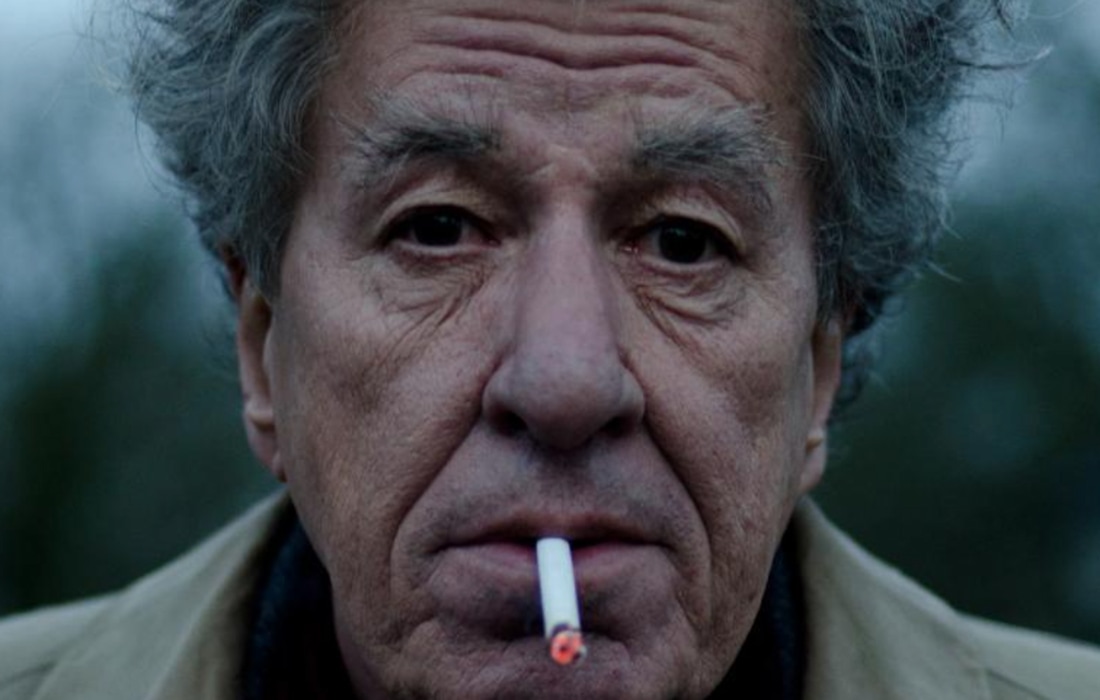|
★★☆☆☆
28 May 2017
A movie review of FINAL PORTRAIT. |
“What better breeding ground for doubt than success,” Alberto Giacometti (Geoffrey Rush)
The artist portrayed on the cinema screen constantly falls into cliché: Caprice, bouts of petulance, womanising, and the audience told (but not shown) he is a genius. All are present in a drab directorial effort from actor Stanley Tucci. (BIG NIGHT was a delightful debut. BLIND DATE was a pointless remake.) His latest is a lacklustre biopic. If not for Geoffrey Rush this would be a TV movie. His use of the f-word is unexpectedly entertaining. The character’s modesty and self-deprecating charm are winsome. FINAL PORTRAIT is poorly made, but the dialogue and camaraderie pass the time.
The artist portrayed on the cinema screen constantly falls into cliché: Caprice, bouts of petulance, womanising, and the audience told (but not shown) he is a genius. All are present in a drab directorial effort from actor Stanley Tucci. (BIG NIGHT was a delightful debut. BLIND DATE was a pointless remake.) His latest is a lacklustre biopic. If not for Geoffrey Rush this would be a TV movie. His use of the f-word is unexpectedly entertaining. The character’s modesty and self-deprecating charm are winsome. FINAL PORTRAIT is poorly made, but the dialogue and camaraderie pass the time.
FINAL PORTRAIT is a bromance between two friends, who mutually respect one another. The two female parts are not however shown to have much respect. The sculptor’s wife, Annette Arm (Sylvie Testud), is neglected and bitter. Sex Worker and lover Caroline (Clémence Poésy) is over the top and hyperactive to the point of irritation.
What feels refreshing among the two-dimensional characterisation is the bone-deep self-doubt suffered by Alberto Giacometti (Geoffrey Rush). His perfectionism is not crushed up paper surrounding the easel. As we look at Alberto continually start and abandon the painting of the title, we get a glimpse of frustration for both creator and muse. We get to see how a project, originally meant to last days, is stretched into weeks. He opines portraits are never finished. If you speak to any creative, in any medium, it is more than probable you will hear the same of their work.
What would you do if a master wanted to paint you? The subject is American writer James Lord (Armie Hammer), who gives a voice-over commentary as he writes a journal. The voice-over does not illuminate much, and generally is a dubious crutch that seldom works. (Note how Harrison Ford’s gumshoe narration is abandoned in subsequent editions of BLADE RUNNER.)
We see Giacometti’s routines as well as his relationship with money. Two million francs are tossed onto the floor. He appears to not trust banks. One surmises, if you survived the turbulence of a world war and occupation it might make a citizen wary of institutions. Brother Diego (Tony Shalhoub) is a sort of manager, advisor and preparer of materials, and a commentator.
1964, Paris, and FINAL PORTRAIT looks budget. A scene driving around in a sports car does not give off the air of exuberance and wild abandon. Like much of the film, it is gratingly misjudged. And the audience gets to see little of the city of love.
Is the grey colour scheme meant to reflect the art of Giacometti? There is though little artistry to the cinematographic palette. FINAL PORTRAIT just comes across as dull and drab.
Using these Google Adsense links help us keep Filmaluation free for all film and arts lovers.

